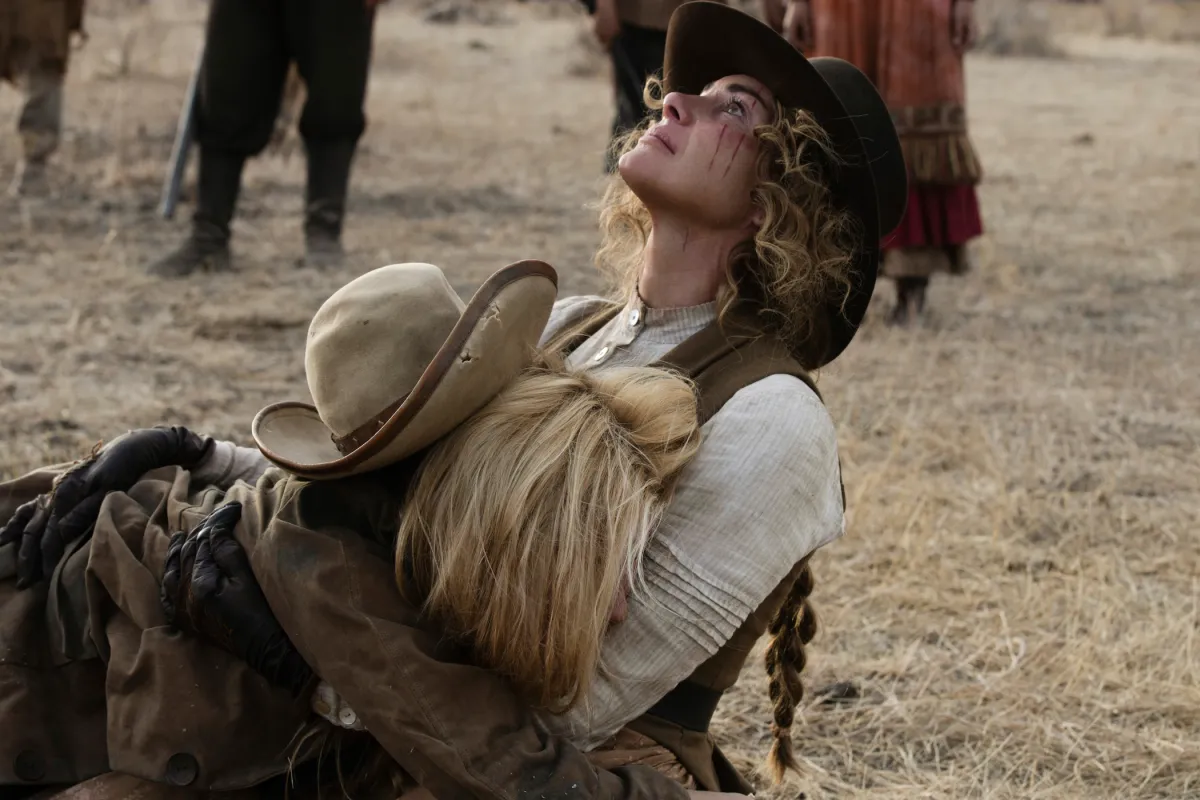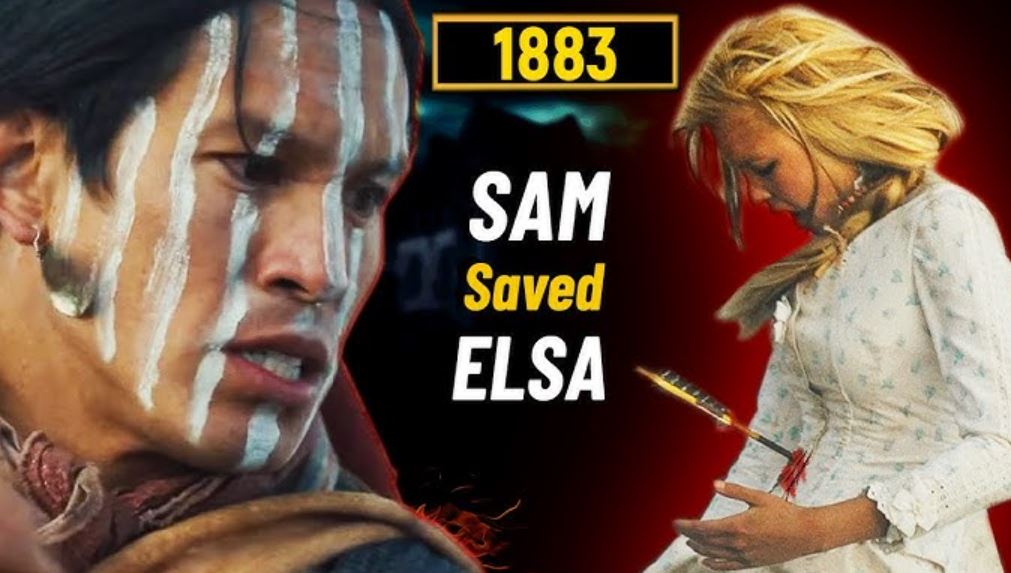The shocking death of kind-hearted cowboy and fan-favorite Ennis (Eric Nelsen) in Taylor Sheridan and John Linson’s American western 1883 episode 5, “Freedom Has Fangs,” represents major implications for one of the series’ main characters, Elsa Dutton. Portrayed by star-in-the-making Isabel May (Alexis and Kate), Elsa is Ennis’ love interest and the eldest daughter of homesteaders James (Tim McGraw) and Margaret (Faith Hill) Dutton, the great grandparents of John Dutton (Kevin Costner) of Yellowstone, 1883’s contemporary counterpart set in modern-day Montana.
Elsa is an optimistic and innocent teenager with a rebellious spirit and a deep appreciation of her surroundings, trying to make sense of a world filled not only with majestic landscapes but with fatal diseases, deadly snakes, treacherous river crossings, and hostile bandits, all standing between freedom and a better future for the Dutton family from Tennessee. In this harsh landscape, Ennis’ death represents yet another hardship.

Created for Paramount+, 1883 is a prequel to the hit show Yellowstone. The story features a host of complex characters and follows the Dutton family as they journey west across the Great Plains of America. The stark retelling of the 19th century Westward Expansion also stars the incomparable and instantly recognizable western character actor Sam Elliott as Pinkerton detective agent and civil war veteran Shea Brennan, and LaMonica Garrett (Sons of Anarchy) as Thomas, also a Pinkerton agent and war veteran who served under Brennan in a “Buffalo Soldier” division during the war. Battling their own demons, Shea and Thomas are hired to accompany and protect a caravan of German immigrants on an ambitious road trip across the Oregon Trail. Before the expedition, they join forces with a reluctant and skeptical James, also a former soldier who suffers from PTSD.
Ennis’ heart-breaking death at the hands of a bandit serves a vital purpose in the story and changes the trajectory of Elsa’s character. As the principal narrator of 1883, Elsa has been front and center as the voice of wonder, optimism, and hope throughout the series. While she has been surrounded by death and disease, the fact that she has now suffered a personal tragedy of her own is going to impact her character in subsequent episodes.
Darker days on the Oregon Trail are surely ahead for the young woman who naively lost her virginity to Ennis and freely chose to fall in love with the charming cowboy. Just seeing the beauty of being a couple without recognizing the possible consequences of her actions, however, Elsa, despite warnings from her mother about heartbreaks in life, is fashioning a new and worse worldview as the result of Ennis’ death and is rapidly becoming more like a hardnosed cowboy in each subsequent episode.

In the emotionally chaotic moments after Ennis dies, a devastated Elsa reveals a side of herself not seen before. No stranger to life-threatening situations—she escapes an attempted rape in the opening episode—Elsa impulsively asserts herself and kills the bandit who took Ennis’ life and tragically ended their fast-developing and short-lived romance. The dramatically captured raw and moving response from Elsa and the equally convincing reactions from the tough-as-nails cowboys surrounding the grim scene clearly demonstrate that her previous worldview—one of innocent wonder and awe—has been shattered.
Despite Ennis’ death marking an ominous turning point for Elsa, ambiguity around the character remains. While her omniscient point of view as the narrator clearly indicates that 1883 unfolds in the past, it also suggests that Elsa might not even arrive in Montana with the rest of the Dutton clan. In the opening sequence of the season premiere, Elsa is pierced in the stomach by an arrow from a Native American.
It isn’t known whether she is pregnant with Ennis’ child at that time—pregnancy and raising a family are recurring topics in Elsa’s talks with her mother—but she rises defiantly, kills him, and while firing her gun in the direction of other would-be attackers, says cryptically in the narration, “But if this is Hell, then I must be a demon, too. And I’m already dead.” In the aftermath of Ennis’s death, audiences now have a better idea why. While it remains to be seen how Elsa’s character evolves through 1883’s final five episodes, she has unquestionably transitioned into a darker, grittier chapter, reflective not just of the Dutton origin story, but of the untamed American West.
